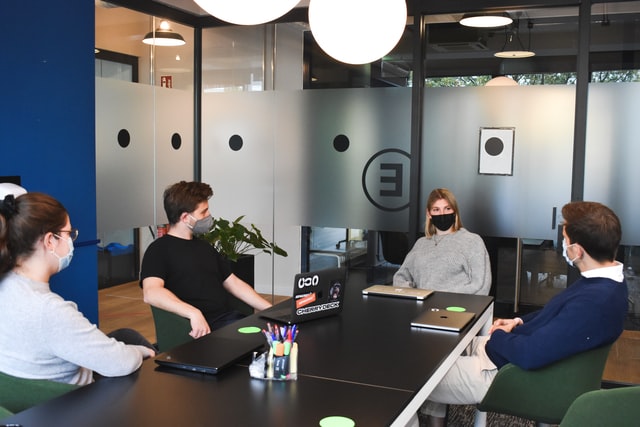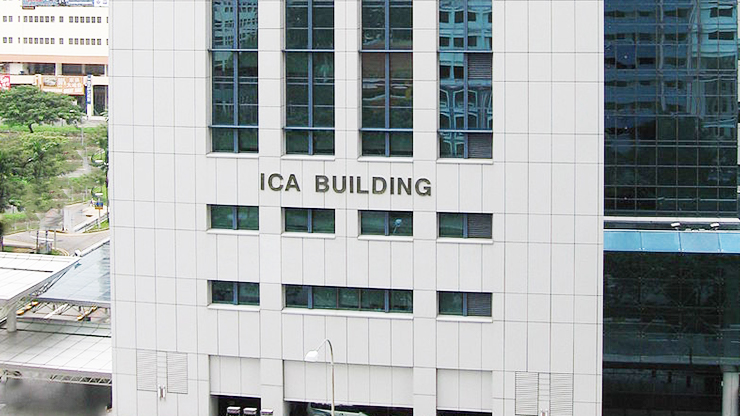It is estimated that 70 per cent of Singaporeans worry about finding another job should they face unemployment. They also feel that they are not likely to get another job offer with similar pay and amenities.
Much of the difficulty that Singapore faces with unemployment these days is related to the pandemic, and the problem seems to be worldwide. In recent times Singapore’s unemployment rates are higher than they have been in over a decade. Recently, a survey was done on the attitudes of Singaporean employees towards unemployment and job insecurity.
The insecurity related to employment in Singapore has risen by 6 per cent compared to the same from a pre-COVID era. About 8 per cent of survey respondents feel “very insecure” in their jobs. While 18 per cent feel ‘somewhat insecure’. About 30 per cent have neutral feelings about the subject and do not feel secure or insecure, whereas 44 per cent reported feeling secure. Only 11 per cent feel ‘very secure’, and 32 per cent reported feeling ‘somewhat secure”.
The survey has also shown that individuals with a household income of at least SGD 8,000 (high-income earners) tend to feel ‘very secure’ in their jobs. Mid-income earners (SGD 4,000 to SGD 7,999) reported the lowest levels of ‘very secure’ feelings.
Most employed Singaporeans are reporting some degree of stress over job losses (94 per cent). Only 6 per cent reported no stress about this. Further statistics are: 19 per cent reported ‘little stress’, 49 per cent reported ‘somewhat stressed’ feelings, and 26 per cent reported feeling ‘very stressed’ about it.
Job insecurity reports also indicate that most Singaporeans, 69 per cent, believe that if they lose their jobs tomorrow, then they will likely not find a similar job with similar pay and employee benefits.
Only 41% of Singaporeans believe that if they become unemployed tomorrow, they can find a new job within six months.
Half of Singaporean employees, around 48%, indicated that they would be willing to take a pay cut of up to 20% to find a similar job. Only around 24% would take a pay cut between 21% and 40%, while only 9% will take a pay cut higher than 40%. The remaining 18% are not willing to take any kind of pay cut. Low-income earners are far less likely to take a pay cut than high-income earners (calculated according to household income).
The results mentioned above are based on 719 full-time employees in Singapore in a similar poll to a new survey that was done in recent years to analyse the effect of lockdown on the workforce.

News on Millenials and Job Security
The average tenure of work in Singapore recently has been two years.
The most important factor has been consistently ranked as the salary, but a recent study showed that job security and overall financial health of the organisation is becoming less and less compared to where it was five years ago.
The report indicated that Millenials do not stay with companies long enough out of their own for factors like job security and corporate financial health to matter as much as it did to previous generations.
Furthermore, this new generation proves further that salary is the most important factor, and this has remained steady among respondents since 2012.
Work-life balance has also become more important since 2016.
A major factor that adds to the lack of job security in the country is related to the fact that many businesses are offshore businesses that are just based in Singapore. These companies often have high staff turnover rates.
More News on Recent Developments
Recently a motion was passed that saw Progress Singapore Party (PSP) member by the name of Leong Mun Wai against Finance Minister Lawrence Wong. Parliament voted in favour of Wong and passed a motion that is meant to secure jobs for Singaporean employees over the increasing number of foreign talent that pours into Singapore every year.
While the report was in favour of support for locals and their livelihoods, it also acknowledged the need for the state to continue to grow and therefore, that it must remain open. Increased support for upskilling and professional development while maintaining and ensuring fair treatment for workers was emphasised. Government is to continue their endeavours to improve the security for locals.
While Wong’s motion was seen by some as an attack on foreigners, he maintains that this is not the case. The city’s foreign employment policies have displaced many local employees in favour of foreigners, and he only wished to address this imbalance.
There is a link between increased numbers of employment pass holders being admitted to the country and that kind of pass is connected to a specific salary group. If foreigners are being employed in this bracket, then it will link to fewer of these opportunities being available for local Singaporeans.

Advantages of Being Employed on Contract Basis
Work-Life Balance
Contract workers undeniably enjoy a better work-life balance than permanent workers. This is largely due to the enhanced flexibility of career path that is enjoyed by a contract worker. Contracts usually allow for much more flexible working arrangements, which leads to increased job satisfaction in the long run and better physical health.
Expansion of Work Experiences and Skillsets
Overall, contract workers gain a lot more exposure than their permanent counterparts. A greater degree of exposure to a broader range of roles, industries and organisations is common among contract workers. They also have the freedom to offer more services to a larger pool of potential employers than a permanent worker can.
It is no secret that management cares less and less about loyalty to the company as time goes by. Diverse working experience is beginning to exceed loyalty in value in a working environment. Furthermore, especially in light of the current working climate worldwide, contract workers have more experience with and are more reliable in remote working environments.
Increased Networking Opportunities
Unhealthy work environments are a real concern for most people. Compensation does not make up for spending almost every day with toxic people. Contract workers tend not to stay with an organisation for too long, and this means that they necessarily spend less time in cut-throat working environments compared to those who are permanently employed at a company. They are therefore able to focus more on their work and achieve better results.
They are also not seen as a threat to permanent staff and are not expected to build much rapport with permanent staff. Therefore, contract jobs offer a kind of detachment from office politics that permanent workers are not privy to.
Increased Earning Potential
Contract workers are able to ask for a higher overall pay packet than a permanent position because the positions they fill are often transient, which means a lower cost to the company in the long run. While this will not always be true, it is true for a great many contract positions available to job seekers today.
The more experience they gain, the better their future prospects for remuneration. This means a faster increase in earning potential compared to permanent workers. As long as the job seekers’ skills remain in high demand, they are likely to be able to set up back-to-back opportunities, which ensures rapid job growth.
Disadvantages of Being a Contract Worker
Decreased Work Security
This is by far the biggest concern of any individual who is considering a shift to contract based work. Contracts expire after their set time has passed, and this amount of time is most often shorter than a calendar year. Workers then need to start looking for new jobs again. This search cycle can be problematic for people who favour stability and consistency in their work environment. The idea of losing one’s job is often exceedingly stressful, but for a contract worker, it does not necessarily mean the same thing as it would for a permanent worker.
That being said, it can be much easier for a contract worker to find a new job than it often is for permanent workers. If you are not too concerned about advertising services and making contact with new possible employers on a more regular basis, then this should not bother you too much. In the end, this also means unlimited access to professional growth.
Absence of Benefits
Contract workers often do not enjoy factors like employer-paid benefits on their contracts. This can be a serious concern for some individuals, especially since illness for a contract worker means a complete lack of income during recuperation. If your career is fast-tracked, though, and you are enjoying a higher gross income than permanent workers, then all of these things can be covered by your monthly income without the help of an employer.
As long as proper financial management is maintained, then contract workers do not have to worry about this lack of benefits.
Deciding Which is Better
That will largely depend on what you value in your work life. How important is job security to you? Do you value flexibility more? Can you manage your money successfully on your own to cover important things like medical cover?

Is this a sign of the Times?
The changing face of work environments across the world seems to be a combination of the COVID-19 pandemic and how it affected the work environment, but also the changing perceptions of a younger workforce. There is a clear link between changing perceptions in businesses and an increase in the number of new workers, which strongly suggests that it is a sign of the times.

 APPLY FOR SINGAPORE PR 2023/2024
APPLY FOR SINGAPORE PR 2023/2024 

